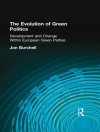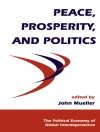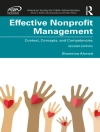Since the 1990s, the economic development of Central and Eastern Europe has maintained high economic growth rates, seemingly leading to an era of prosperity. This very positive vision of future economic success, linked to current political backlash and a long history of economic adversity, is a thin veil of the economic “way west” for so-called transition countries. The Middle-Income Trap in Central and Eastern Europe examines the reality of the diminishing marginal utility of further international investments alongside the pitfalls of higher government spending to cultivate innovation which ultimately makes foreign capital less attractive. In this volume authors from diverse disciplinary perspectives reflect on current debates surrounding the developmental bottlenecks in East-Central Europe. Their common goal is to analyze the manner of socio-economic transformation, question of the relevance and impact of the “middle-income trap” and identify possible ways to escape it.
Jadual kandungan
Introduction: Transformation of the Transformation? The Middle Income Trap and the Search for a New Development Strategy in the Post-Communist States of Central and Eastern Europe
Yaman Kouli and Uwe Müller
Part I: Historical Legacies
Chapter 1. Poland’s Communist Heritage and Its Impact on Post-1990 Economic Development
Yaman Kouli
Chapter 2. Institutional Development and Growth as Outputs of Early Transition Policies
Tal Kadayer
Part II: Development Strategies on the Economic, Entrepreneurial and Individual Level
Chapter 3. The Middle-Income Trap and Its Narrow Escape Hatches: Dependent Development and FDI-Led Growth in Romania
Cornel Ban and Zoltán Mihály
Chapter 4. Between Domestic Entrepreneurship and Global Technology Chains: Upgrading Paths of Two Large IT Firms from Poland
Grzegorz Lechowski
Chapter 5. The Value of Return Migration – The Case of Bulgaria
Birgit Glorius
Part III: The Impact of European Integration
Chapter 6. The Winners and Losers of Economic Openness: Eastern Europe’s Growth Path Post-1989
Kiril Kosse
Chapter 7. Developmentalist Illusion? EU Cohesion Policy, Dependent Development, and the State in East Central Europe
Daniel Šitera
Chapter 8. East-Central Europe: The Eternal Periphery of the EU?
Christian Schweiger
Chapter 9. Cohesion Policy for Escaping Middle-Income Trap
Andrea Filippetti and Raffaele Spallone
Conclusion: Conclusion and Outlook
Uwe Müller
Mengenai Pengarang
Uwe Müller has been a senior researcher at the GWZO/Leibniz Institute for the History and Culture of Eastern Europe since 2011. He gained a Ph D in economic history at the Humboldt University in Berlin. He has researched and taught at the Humboldt University, the European University Viadrina in Frankfurt (Oder) and the Saarland University in Saarbrücken. His research interests include the economic history of Eastern Europe from the middle of the 19th century to the present day with a special focus on the integration of this region in the European and world economy.












